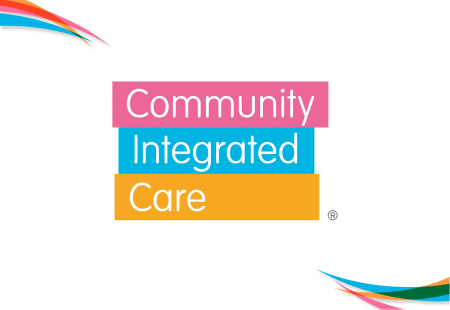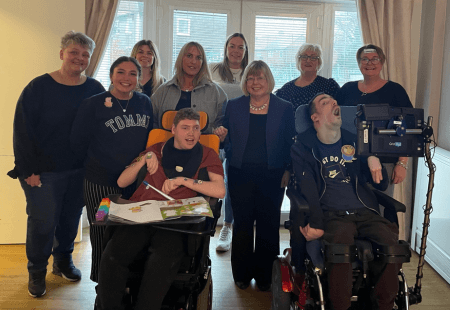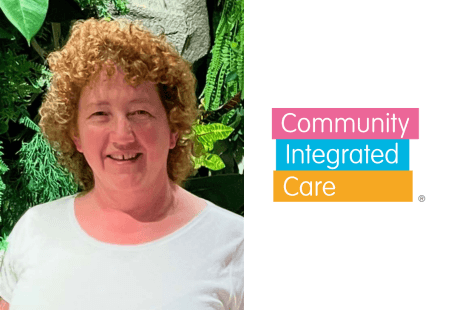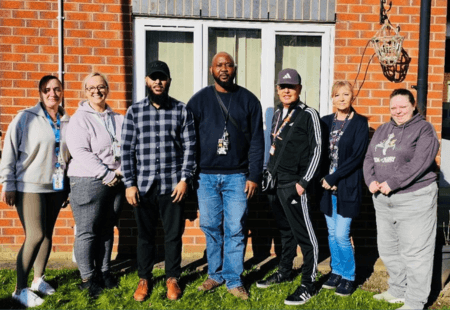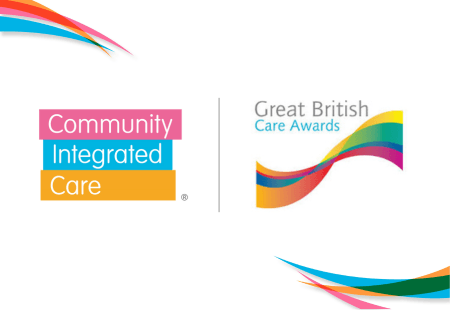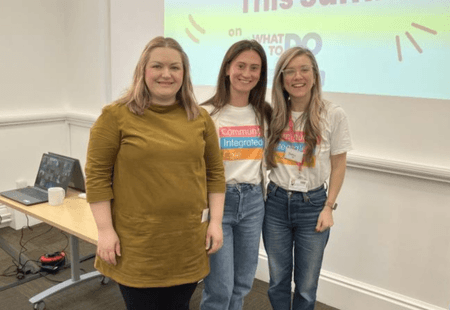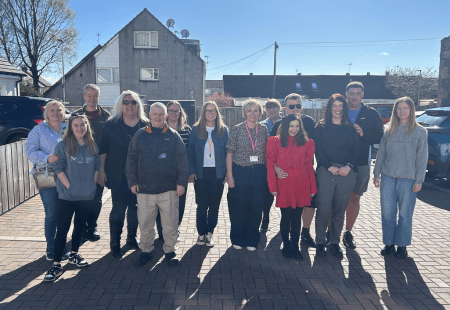
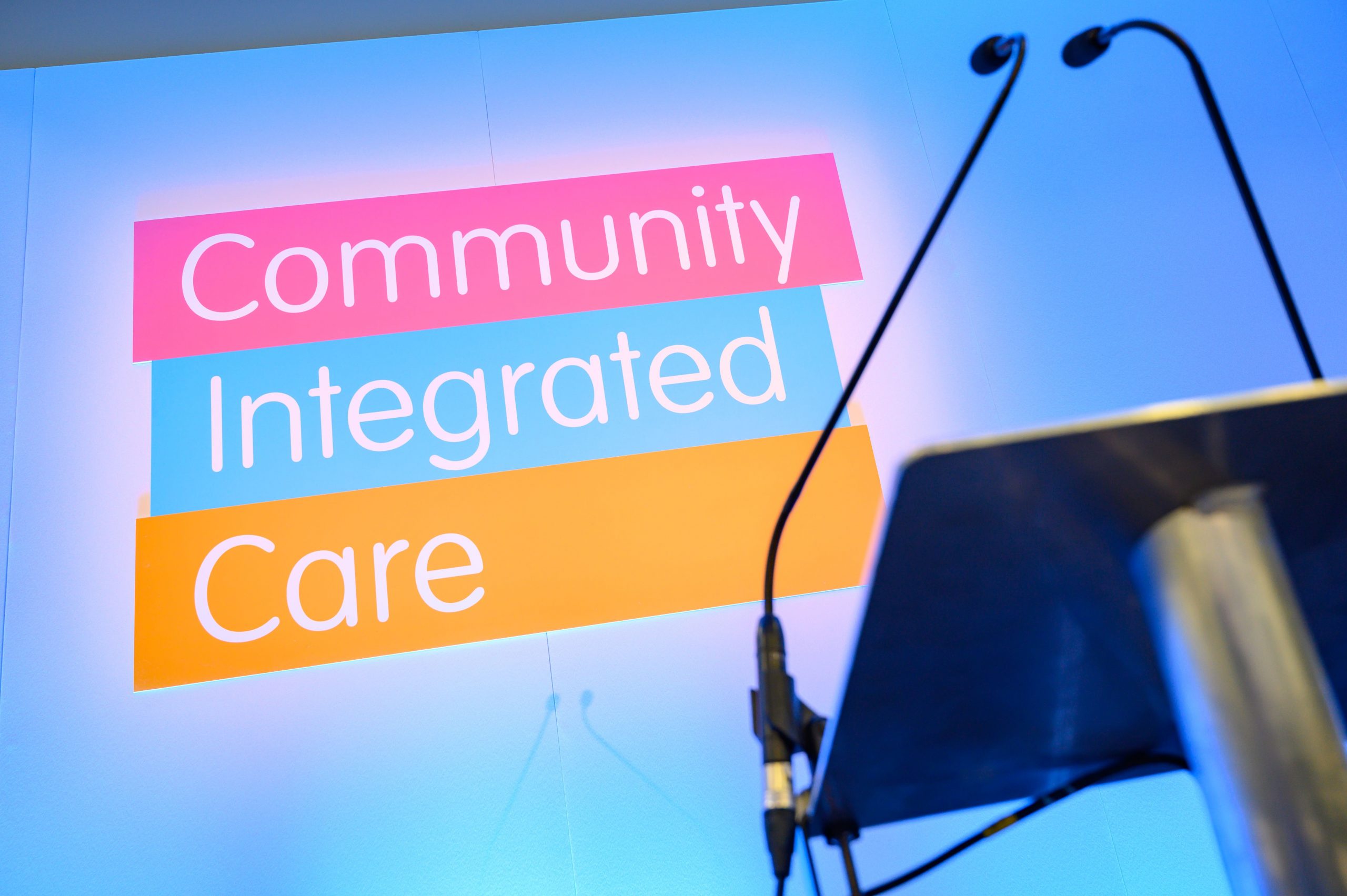
News
21/06/2024
We sign joint statement to Party Leaders
Community Integrated Care has today joined a group of organisations, led by the Local Government Association, to set out the importance of recognising the role social care, by signing a joint letter to National Party Leaders, ahead of the 2024 General Election.
You can read the full letter and signatories below:
Hope and ambition for people and communities: the value of adult social care to us all
We write as organisations bound together by a common desire to see a step change in the way that adult social care and support is understood, talked about, championed and prioritised at the national political level.
As you and your teams of candidates and support staff continue on the campaign trail, two things strike us about the 2024 General Election so far: first, adult social care is not as prominent as it should be in debates about the future of our communities; and second, when adult social care does have its moment in the spotlight, it tends to be presented as a service that is broken and in need of being fixed, or defined in narrow terms around questions about ‘who pays for social care?’ or ‘how can social care help reduce hospital waiting lists?’. Important questions, of course. But the answers take us nowhere near articulating the true value of care and support.
Collectively, we represent and advocate for the care and support workforce, organisations which provide services, councils which have a range of statutory responsibilities for delivering adult social care and supporting wellbeing locally, key partners in health, care and wellbeing, and, most crucially, people who draw on care and support. In this way, we represent millions of people and billions of pounds.
While we all recognise – and grapple daily with – the many pressures on the system and their consequences, we also see social care at its best, transforming countless lives for the better.
When resourced adequately and organised well, social care is the means through which adults of all ages, with different conditions and reasons for drawing on care, are able to live their best life. That is a pursuit to be proud of and one which generates and replenishes energy, commitment and dedication.
When we view care and support in this way, and when we see it at its best, we see wider value. It helps to maintain people’s relationships and connections with family, friends and loved ones. It supports local economies both through the employment it provides for the workforce and the employment it helps people, particularly unpaid carers, to remain in. By supporting people’s health and wellbeing, it helps alleviate pressures on other parts of the public sector, whether that be the NHS, housing or the criminal justice system.
People within the sector describe the value of social care in many different ways. Some say it is a structure of support that helps people to continue doing the things that matter most to them. Others say it is the glue that helps bind our communities together. Others say it is inseparable from the idea of preserving people’s human rights. The unifying theme in all such definitions, and others, is that care and support is a fundamental part of the social and economic fabric of our local communities.
We know from our own work that when we talk about adult social care in this way, it resonates with people. It inspires hope and ambition. It flicks a switch in people’s minds which turns off the doom-loop of ‘crisis’ and ‘collapse’, the view of people drawing on care and support as inherently ‘vulnerable’, and the presentation of people’s support requirements to live a good life as ‘demand to be managed’. This creates the space to see that care and support is about all of us. Whether that’s our own, or our loved ones’, existing or potential reasons for drawing on care and support, those we know in the care workforce, or those we know who provide loving unpaid care. In this way, care and support comes into view as an indicator of what kind of society we live in, or aspire to live in.
As National Party Leaders and the figureheads for all your parliamentary candidate colleagues, we encourage you to talk more about adult social care in the remaining weeks of the election campaign and to talk about it in the above way.
Irrespective of the colour of your rosette, we know you’re seeking high office because you care about the future of our country. Now is a great chance to demonstrate that driving motivation.
Avoid the trap of politicising the debate about the future of care and support. We all know from experience that the net result of that is greater apathy and disappointment. Instead, extol the virtues and value of care and support as we have described them above. Recognise the role of social care at every level of society. Give people reasons to be hopeful, not alarmed. Above all, make adult social care about all of us.
We are confident that embracing the debate in this way will help build support for the changes we seek and the decisions you will need to take once in office. We are purposefully not setting out a set of ‘asks’ here; these are well-rehearsed across the sector and we are pushing them individually and collectively in other ways. Whether it’s action on quality, coproduction with people who draw on services to help develop new models of support, greater investment in prevention, more personalised care, more and better support for unpaid carers, sustainable funding, and tackling workforce recruitment and retention challenges, we stand ready to work with you and talk you through how we think things can be improved for the better.
In closing, the one ask we do make here is to engage with people who draw on care and support as equals. As experts in what does and doesn’t work for them. Their insights are just as illuminating and just as important as those of the politicians and professionals who work across the sector. Work with people, not just for them.
In just a few short weeks, one of you will stand outside 10 Downing Street and speak to the nation as Prime Minister. What an incredible speech it could be if, at the outset of your tenure, you indicate that prioritising and strengthening adult social care – and its real value and purpose – will be a central mission within your wider plan for government. What an opportunity to provide hope and ambition for us all.
“We all want to live in the place we call home, with the people and things we love, in communities where we look out for each other, doing the things that matter to us. That’s the social care future we seek.”
Social Care Future
Signatories
- Cllr Kevin Bentley, Senior Vice Chairman, Local Government Association
- Cllr Tim Oliver OBE, Chairman, County Councils Network
- Cllr Sir Stephen Houghton, Chair, Special Interest Group of Municipal Authorities
- Cllr Sam Chapman-Allen, Chairman, District Councils Network
- Melanie Williams, President, Association of Directors of Adult Social Services
- Clive Parry, Director for England, Association for Real Change
- Kathy Roberts MBE, Chief Executive, Association of Mental Health Providers
- Nadra Ahmed CBE and Ian Turner OBE, Co-Chairs, National Care Association
- Vic Rayner OBE, Chief Executive, National Care Forum
- Paula Gledhill, Head of Public Affairs, Dimensions
- Michelle Corrigan, Director, Digital Care Hub
- Michael Voges, Chief Executive, Associated Retirement Community Operators
- Karolina Gerlich, Chief Executive, Care Workers Charity
- Sarah Maguire, Chief Executive, Choice Support
- Isaac Samuels and Kate Sibthorp, Co-Chairs, National Coproduction Advisory Group
- Ian McCreath, Director, Think Local Act Personal
- Dr Anna Severwright OBE, Co-Convenor, Social Care Future
- Oonagh Smyth, Chief Executive, Skills for Care
- Sarah Burslem, Chief Executive, MacIntyre
- Jackie O’Sullivan, Acting Chief Executive, Mencap
- Rhidian Hughes, Chief Executive, Voluntary Organisations Disability Group
- Emily Holzhausen CBE, Co-Chair, Care and Support Alliance
- Julie Stansfield, Chief Executive, In Control Partnerships
- Kathryn Smith, Chief Executive, Social Care Institute for Excellence
- Sam Monaghan, Chief Executive, Methodist Homes
- Prof Martin Green OBE, Chief Executive, Care England
- Adam Micklethwaite, Director, Autism Alliance UK
- Melanie Weatherley MBE, Chair, Care Association Alliance
- Gill Morris, Director, Future Social Care Coalition
- Dr Ruth Allen, Chief Executive, British Association of Social Workers
- Belinda Phipps, Chief Executive, United Response
- Jim Kane, Chief Executive, Community Integrated Care
- Zeenat Jeewa, Chief Executive, Asian People’s Disability Alliance
- Ruth Owen OBE, Chief Executive, Leonard Cheshire
- Helen Walker, Chief Executive, Carers UK
- Wendy Burt, Chief Executive, Essex Carers Network
- Karyn Kirkpatrick, Chief Executive, KeyRing
- Prof Jon Glasby, University of Birmingham and Director, Improving Adult Care Together (IMPACT)
- Dr Jane Townson OBE, Chief Executive, Homecare Association and Chair, Care Provider Alliance
- Alex Johnston, Head of Commercial and Social Enterprise, West of England Centre for Inclusive Living
- Tricia Nicoll, Founder, Gloriously Ordinary Lives
- Alzheimer’s Society

